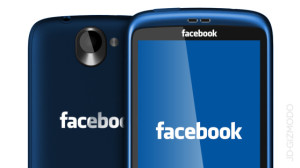The Value of a Channel
By Jerry Rackley
The Wall Street Journal reported this week that Facebook revenue rose 40% on the strength of mobile ad sales. I was not surprised at this, particularly after hearing our friend Jeanne Hopkins, CMO and EVP of SmartBear Software, share at last year’s Hubspot Inbound Conference that Facebook mobile ads get 13 times more clicks than regular ads. That kind of ad conversion has apparently caused a lot of advertisers to sit up and take notice. I could devote the remainder of this post to advice on how to jump on the mobile marketing bandwagon. But hold that thought while we consider some other recent news.
Last week, The Wall Street Journal also reported on the record sales of the Apple iPhone for the December quarter – 47.8 million units shipped. It wasn’t enough, however, to reverse the sales slowdown, which has seen the company lose a third of its value since September 2012. That’s $50 billion in value erased in a quarter that saw the availability of two major, new products: the iPhone 5 and the iPad mini.
I’ll leave the financial analysis of this situation to the pros. My interest is in the implications for the marketing communications channel that Facebook represents. What brought this into clear focus for me was a discussion I had this week with a client who was struggling to promote her services. For years she has relied almost exclusively on email as her marketing communications channel. As its effectiveness continues to ebb, her solution was to simply pump up the volume and try to stay ahead of the erosion. What she didn’t realize is that her very response to the diminished effectiveness of email was helping accelerate its demise.
What I encouraged this client to do was develop her own social media relationship with her target market. Anyone who has done so will quickly recognize the benefits of owning your own channel that is 100% opt-in with amazing sharing mechanisms. I recall visiting with a business owner friend of mine, and former social media skeptic, about his foray into social media. Before the advent of Facebook, he spent years collecting 10,000 email addresses to electronically market to his customers. When Facebook established itself as a tour de force, his marketing staff convinced him to set up a company Facebook page. Within six months, he had more than 25,000 “Likes”.
Let’s go back to the recent Facebook and Apple earnings. While Apple shares have taken a big hit, Facebook share value has moved up smartly since September, perhaps because of its mobile investment. Whatever the reasons (again, I’ll let the financial analysts sort this out), from a marketing perspective, the value is all in the channel, not the device used the access the channel. In the end, a Facebook mobile ad can reach its target through a number of devices, and the device landscape is constantly shifting. The constant is the network – or channel – that serves up the advertisements. Don’t hear this as Apple bashing – I’m a firm devotee that is completely bought in to the Apple ecosystem (inventory: one Macbook Pro, one iPad and two iPods). Still, you don’t have to be much of student of technology history to understand that hardware gets smaller, faster and cheaper – and less profitable. The more enduring value is in the channel and the content. Advantage: Facebook.
The takeaway I have to offer is not which company’s stock to purchase. Instead, it is encouragement to consider how mobile marketing should factor in to your mix of marketing communications channels. In this decision, Demand Metric can offer some practical help: we have a collection of resources to help you develop a mobile marketing strategy. A great place to start is by doing a Mobile Marketing Readiness Assessment.
Image credit: http://venturebeat.com/



